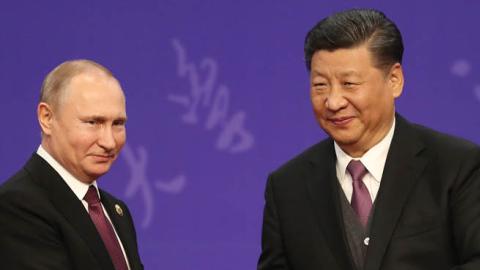Anyone who thought international politics would calm down once Donald Trump left center stage has had a rude awakening. After the Alaska confrontation between top U.S. and Chinese officials and the slanging match between Presidents Biden and Vladimir Putin, the world is as fraught as ever. American relations with Russia are at their lowest ebb since the Kennedy administration and U.S.-China relations at their frostiest since Henry Kissinger went to China in 1971, while Beijing and Moscow are more closely aligned than at any time since the death of Stalin.
It is not just the big boys who are testing the Biden team. Officials at Washington’s Fort McNair tightened security after reports of Iranian threats against the facility. North Korea is said to be moving toward new tests of long-range missiles. The Taliban announced that it plans to impose “Islamic rule” on Afghanistan when American forces leave. Meanwhile, U.S. Special Forces have arrived in Mozambique to train local troops in the face of a major offensive by ISIS-aligned militia groups. Authorities in Belarus have largely crushed the democracy movement in that country, and the Burmese military, despite facing unprecedented opposition at home and criticism abroad, shows no sign of relaxing its grip on power.
Relations with allies are also bumpy. The Biden administration threatened sanctions against European companies participating in the Nord Stream 2 project. And on a recent trip to Delhi, Defense Secretary Lloyd Austin warned India against purchasing S-400 missile systems from Russia.
Read the full article in the Wall Street Journal


















